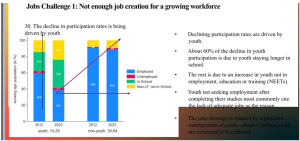
By Ebenezer Chike Adjei NJOKU
The nation’s twin push to launch a Central Bank Digital Currency (CBDC) and introduce a formal licencing framework for cryptocurrency operators is raising speculation among market analysts that the country could become a magnet for foreign investment in its digital economy.
The Bank of Ghana’s e-Cedi pilot, now in advanced testing, is intended to broaden financial inclusion and improve payment efficiency. At the same time, the central bank is preparing to roll out a licencing regime for Virtual Asset Service Providers (VASPs) in September 2025 – bringing crypto exchanges, custodians and wallet providers under formal oversight for the first time.
The combination of these measures is being closely monitored by global fintech companies, blockchain developers and venture capital funds looking for entry points into regulated but innovation-friendly African markets, according to the Global Crypto and Digital Asset Regulations: African Focus and Worldwide Outlook (2025) report. “Countries that are proactive in regulating and enabling the crypto sector stand to benefit from increased investment, improved compliance standards and accelerated digital financial inclusion,” a portion of the report reads.
The domestic digital currency initiative arrives at a time of rapid adoption across the continent. According to the report, Africa accounted for an estimated five percent (US$125billion) of on-chain cryptocurrency transaction volume in 2024, representing a year-on-year (YoY) growth rate of 11 percent despite global market volatility. Peer-to-peer (P2P) trading remains a dominant entry point, particularly in countries with restrictive regulations – but institutional interest is increasing where legal frameworks are clear.
Under the forthcoming regime, VASPs will need to meet capital adequacy rules, segregate client assets and implement anti-money laundering and counter-terrorist financing controls aligned with Financial Action Task Force (FATF) standards. The framework also signals Ghana’s intent to adopt provisions for stablecoins – requiring reserve backing and redemption rights – and integrate cryptocurrency taxation into the national fiscal system in line with the Organisation for Economic Co-operation and Development’s (OECD) Crypto-Asset Reporting Framework.
For investors, these steps promise greater legal certainty in a region where digital asset regulation remains inconsistent as fewer than 25 percent of sub-Saharan African countries currently have formal crypto laws while roughly 20 percent maintain outright bans, according to FATF. The nation’s shift toward structured oversight is therefore being interpreted as an important market signal, potentially lowering the perceived risk profile for institutional capital.
The e-Cedi project further enhances the country’s appeal by demonstrating central bank commitment to digital innovation. The currency is being tested in both urban and rural settings to evaluate offline functionality, merchant acceptance and integration with mobile money platforms.
If interoperable with other regional payment systems such as the Pan-African Payment and Settlement System (PAPSS), it could support cross-border transactions at significantly lower cost – an attractive proposition for international remittance firms and trade finance operators, the report pointed out.
Remittances represent a critical part of the local economy, contributing over US$6.65billion in inflows for 2024, according to World Bank data. By reducing transaction costs, the e-Cedi could make Ghana more competitive in a global remittance market where African senders currently face some of the highest fees in the world, averaging 7.8 percent for a US$200 transfer.
However, analysts caution that foreign interest will depend heavily on execution. “Regulatory clarity is a precondition, but so is efficiency. Lengthy licencing procedures, unclear tax rules or gaps in consumer protection could deter the very investors Ghana hopes to attract,” noted Awura Abena Amponsah, Country Partner for Pebuu and author of the report.
The Global Crypto and Digital Asset Regulations report also warned that “in markets where policy timelines slip or enforcement is inconsistent, investor enthusiasm can quickly dissipate; leaving projects underfunded and innovation momentum stalled”, stressing the importance of meeting the September 2025 target without prolonged delays.
Ghana’s ability to replicate the success of other digital asset hubs will depend on the speed and transparency of its licencing process, robustness of its supervisory capacity and degree of market openness to foreign entrants. “What investors want is not just permissive rules but predictable rules, knowing the goalposts will not shift midway through deployment,” the report noted.
The post e-Cedi, new crypto rules expected to draw FDI – report appeared first on The Business & Financial Times.
Read Full Story












Facebook
Twitter
Pinterest
Instagram
Google+
YouTube
LinkedIn
RSS